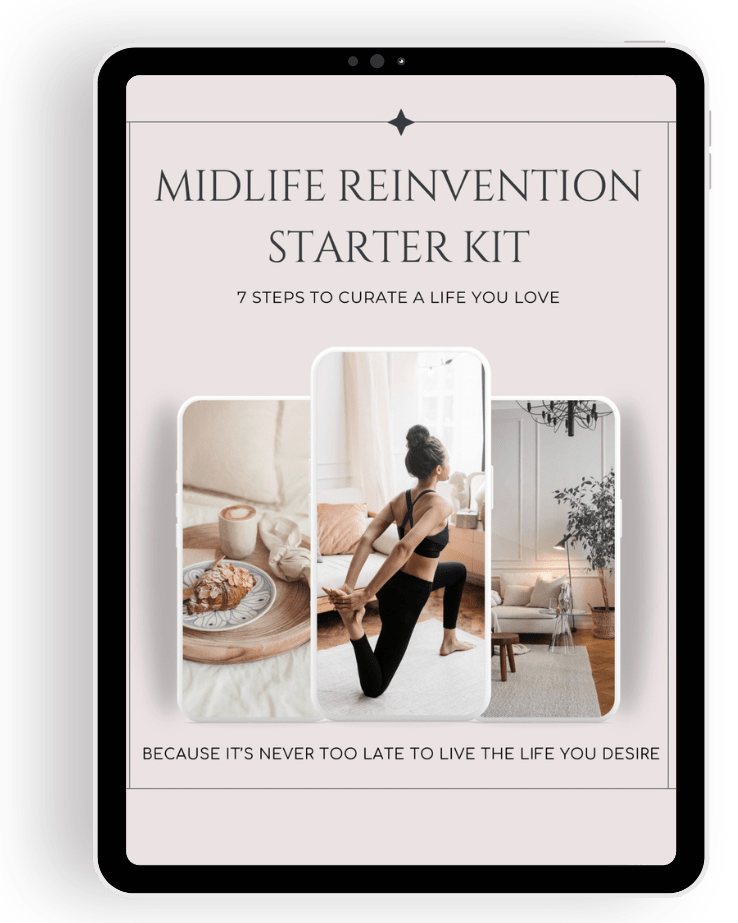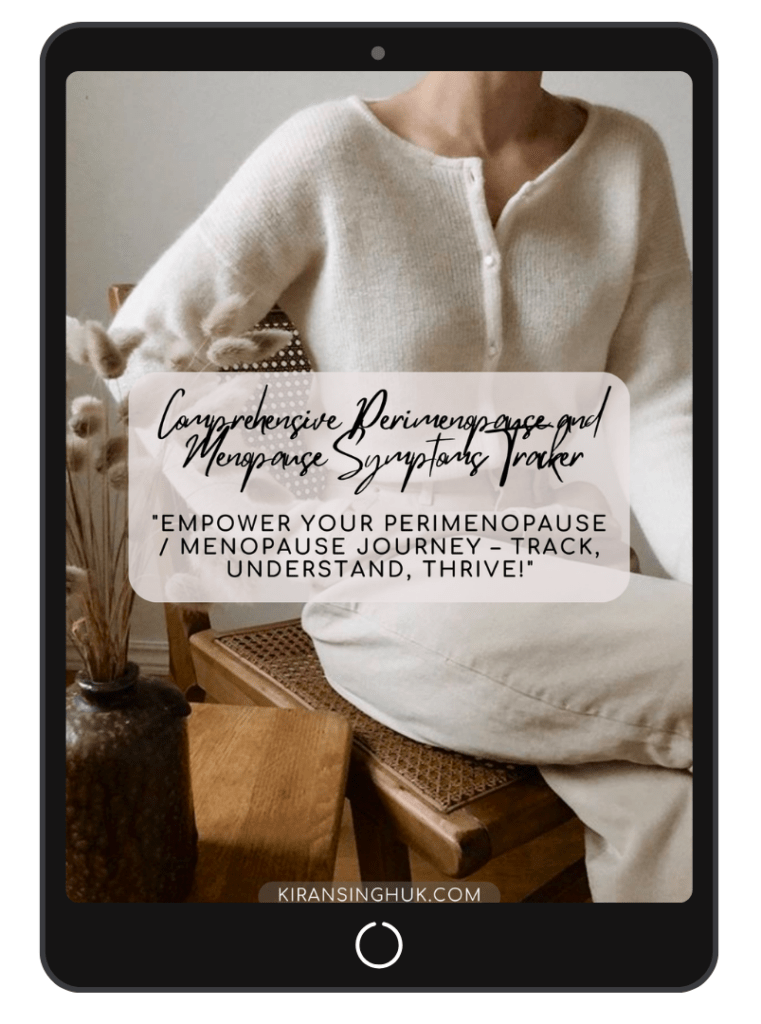Menopause is a significant transition in a woman’s life, bringing hormonal changes that can affect nearly every aspect of well-being, including sleep. If you’re finding it harder to get a good night’s rest during menopause, you’re not alone. Sleep disturbances are one of the most common complaints among menopausal women, and they can significantly impact your mood, energy levels, and overall health.
In this guide, we’ll explore why menopause affects sleep, the most common sleep problems, and actionable steps you can take to improve your sleep quality.

Lifestyle Changes That Can Help with Sleep During Menopause
Simple lifestyle changes can make a significant impact on your sleep quality:
1. Develop a Consistent Sleep Routine
Try to go to bed and wake up at the same time each day to regulate your body’s internal clock.
READ MORE: Tips for getting a good night’s sleep
Journal Prompts for Healthy Sleep Habits:
- What does my ideal nighttime routine look like?
- What habits might be interfering with my sleep, and how can I change them?
- How do I feel after a good night’s sleep compared to a poor one?
2. Prioritise Relaxation
- Practice deep breathing exercises or meditation before bed.
- Engage in calming activities like journaling or reading a book.
- Take a warm bath with Epsom salts to help relax muscles.


3. Exercise Regularly
- Engage in at least 30 minutes of movement daily (e.g., yoga, Pilates, or brisk walking).
- Avoid intense exercise close to bedtime, as it may raise cortisol levels.

4. Optimise Your Diet
- Eat foods rich in magnesium (almonds, spinach, avocado) to promote relaxation.
- Include protein and healthy fats at dinner to stabilise blood sugar levels overnight.
- Avoid heavy meals and excessive sugar before bedtime.

5. Reduce Screen Time
Blue light from screens interferes with melatonin production. Aim to disconnect from devices at least an hour before bed.

Journal Prompts for Managing Menopausal Anxiety and Sleep:
- What are my biggest sources of stress right now, and how can I reduce them?
- How did I feel when I woke up this morning? What can I do differently for better rest?
- What small nighttime rituals can I introduce to help me feel more relaxed before bed?
FAQ’s
Why Does Menopause Affect My Sleep So Much?
Menopause affects sleep due to fluctuations in hormone levels, particularly oestrogen and progesterone. These hormones play a key role in regulating sleep, body temperature, and mood. When their levels drop, it can lead to night sweats, hot flashes, anxiety, and even changes in the body’s natural circadian rhythm.
What Are the Most Common Sleep Problems During Menopause?
During menopause, you may experience several types of sleep disturbances, including:
- Insomnia: Difficulty falling or staying asleep, leading to poor sleep quality.
- Night Sweats & Hot Flashes: Sudden waves of heat that can wake you up and make it difficult to fall back asleep.
- Restless Legs Syndrome (RLS): An uncontrollable urge to move the legs, often worsening at night.
- Sleep Apnea: A sleep disorder that causes breathing interruptions, which can become more prevalent due to hormonal changes.
- Early Morning Awakening: Waking up too early and struggling to return to sleep.
Additionally, the decline in melatonin – a hormone that regulates sleep – can make it harder to fall asleep and stay asleep.
Can Anxiety and Mood Swings During Menopause Also Affect Sleep?
Yes, absolutely. Menopause often brings heightened anxiety and mood swings due to fluctuating hormone levels. Increased cortisol (the stress hormone) can make it harder to relax, leading to racing thoughts at bedtime. If you’re feeling more irritable, overwhelmed, or emotionally sensitive, this could be affecting your ability to fall and stay asleep.
How Can I Manage Hot Flashes and Night Sweats to Improve My Sleep?
Hot flashes and night sweats can be disruptive, but there are several strategies to manage them:
- Dietary Adjustments: Reduce caffeine, alcohol, and spicy foods, which can trigger hot flashes.
- Herbal Support: Some women find relief using black cohosh or evening primrose oil (consult your doctor before use).
- Keep Cool: Use breathable cotton sheets and moisture-wicking sleepwear.
- Control Your Environment: Keep your bedroom temperature cool and use a fan or air conditioning.
- Choose the Right Bedding: A cooling mattress topper or gel pillow can help regulate temperature.



Should I Be Concerned About Sleep Apnea Developing During Menopause?
Yes. The risk of sleep apnea increases during menopause due to hormonal shifts, weight gain, and changes in airway structure. Symptoms include:
- Loud snoring
- Choking or gasping for air during sleep
- Excessive daytime fatigue
- Morning headaches
If you suspect sleep apnea, consult your doctor. Sleep studies and CPAP therapy can be life-changing.
What Are the Treatment Options for Sleep Problems Related to Menopause?
If lifestyle changes alone aren’t enough, consider these options:
1. Hormone Replacement Therapy (HRT)
HRT can alleviate hot flashes, night sweats, and sleep disturbances. However, it’s important to discuss the benefits and risks with your doctor.
2. Cognitive Behavioural Therapy for Insomnia (CBT-I)
CBT-I is a proven method for treating sleep disturbances, helping you reframe negative sleep thoughts and establish healthier habits.
3. Supplements
- Magnesium: Helps relax muscles and improve sleep quality.
- Melatonin: Can support falling asleep faster, but should be used under guidance.
- Herbal Teas: Chamomile, valerian root, and passionflower teas can promote relaxation.
4. Professional Guidance
If sleep issues persist, seek support from a menopause specialist, sleep therapist, or naturopath for tailored advice.
Practical Sleep Tips for Immediate Relief:
- Use a weighted blanket for added comfort and relaxation.
- Try aromatherapy with lavender or bergamot essential oils.
- Listen to sleep-inducing sounds, like white noise or guided meditations.
- Limit naps to 20 minutes if you struggle with nighttime sleep.
Final Thoughts & Call to Action
Menopause-related sleep issues can be frustrating, but with the right strategies, you can reclaim restful nights and wake up feeling refreshed. Your body is going through an important transition, and prioritising self-care will help you navigate it with greater ease.
If you’re struggling with sleep during menopause, start by making small, intentional changes to your routine. Need personalised guidance? Book a consultation with me today to create a sleep strategy tailored to your unique needs.
What’s one change you’ll implement tonight for better sleep? Let me know in the comments below!
DISCLAIMER
I am not a health professional or medical practitioner. I am a certified Menopause Wellness Coach, and the information provided here is intended for educational and informational purposes only. It should not be taken as medical advice, diagnosis, or treatment. For any health-related concerns or queries, please consult your GP or a qualified healthcare provider. Always seek the advice of a medical professional before making any changes to your healthcare routine or starting new treatments.

Feel free to sign up to my Friday Morning Love Note HERE! This isn’t just a newsletter - it’s your invitation to pause, reflect, and realign with you. Every week, we’ll journey together to uncover the small, meaningful shifts that will help you design a life that feels uniquely and beautifully yours. Each week, I’ll deliver fresh intentions, uplifting tips, and simple shifts to inspire purposeful, creative living.




